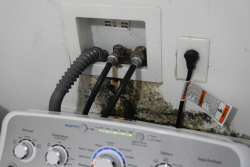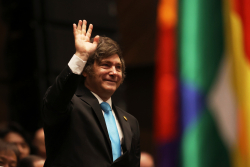ARTICLE AD BOX
PARIS — French President Emmanuel Macron’s shock announcement last week of France’s plans to recognize a Palestinian state seemed like a failed gambit at first.
The United States and Israel torched the move. Reaction domestically split across party lines as expected.
But fast-forward a week and it’s clear Macron was ahead of the curve. The United Kingdom and Canada have both followed France’s lead, albeit with caveats, and Germany appears to be inching closer to rein in its historically staunch support for Israel unless it does more to end the humanitarian catastrophe playing out in Gaza.
The shift in favor of recognition may be of little solace to those on the brink of famine in Gaza, but it’s clear that Macron was at the forefront of Western Europe’s push in favor of this historical demand of the Palestinian people.
“This is definitively a French moment,” said Hamza Hraoui, the director of the Paris-based global public affairs firm MGH Partners. “It’s a point scored for French diplomacy.”
The French president had for months been telegraphing that French recognition of a Palestinian state, the first of any G7 country, was coming. Macron said in April that he would move toward recognizing Palestinian statehood but attached a string of ambitious conditions, including the necessity that several Middle Eastern nations needed to normalize their relations with Israel.
Macron had hoped the venue for such joint recognition would be a United Nations conference organized by France and Saudi Arabia, but that idea collapsed with the end of a ceasefire between Hamas and Israel. The conference itself, initially slated for June, was postponed after Israel’s airstrikes on Iran.
Yet Macron remained moved to act after his meeting with Gazans at a hospital in Egypt in April, according to France’s former ambassador for the Mediterranean, Karim Amellal.
“He was constantly talking about it … discussing it with everybody, even talking about it on a trip to Southeast Asia,” said Amellal.
 The shift in favor of recognition may be of little solace to those on the brink of famine in Gaza. | Mohammed Saber/EPA
The shift in favor of recognition may be of little solace to those on the brink of famine in Gaza. | Mohammed Saber/EPAMacron instead turned to G7 nations and European partners to regain the initiative. If several countries joined Paris, a nuclear power and permanent member of the U.N. Security Council, Israel could be forced to listen.
Given Macron’s push for recognition in conjunction with allies, the timing and format of his announcement was a surprise. A French official close to Macron, granted anonymity for protocol reasons, said nothing had been completely set in stone before Macron had decided to take a “risk.”
But that risk appears to have paid off.
“He calculated the U.K. would come in the same direction,” said a former British diplomat who was granted anonymity to speak candidly.
After British Prime Minister Keir Starmer’s announcement Tuesday that the U.K. would recognize a Palestinian state in September unless the Israeli government takes “substantive steps” to end the crisis in Gaza, Canada’s Mark Carney said Wednesday Ottawa would do the same if the Palestinian Authority follows through on its promise to hold elections next year “in which Hamas can play no part.”
Then German Foreign Minister Johann Wadephul said in a statement Thursday that the process that will lead to recognition and a two-state solution “must start now.”
The push for recognition has also reverberated in Brussels, but the European Union has so far failed to agree on any steps to censure Israel, including a plan to suspend EU research ties.
Ultimately, how Washington, Israel’s closest ally, responds to the calls for Palestinian statehood will be the true test of success.
The U.S. president has brushed off European diplomatic efforts, but he appears to be losing patience with Israeli Prime Minister Benjamin Netanyahu over the war in Gaza as well.
“Even Donald Trump is saying ‘you can’t fake that’ about starvation,” said the consultant Hraoui.
In Europe,”nobody has a capacity to act,” said Amellal. “But it’s the only regional momentum at work right now.”
Esther Webber contributed to this report from London.
.png)
 3 months ago
8
3 months ago
8








 English (US)
English (US)